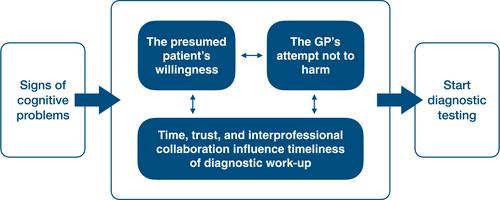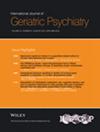Doing the Right Thing? General Practitioners' Considerations in Achieving a Timely Dementia Diagnosis
Abstract
Objectives
Timely detection and diagnosis of dementia are beneficial for providing appropriate, anticipatory care and preventing acute situations. However, initiating diagnostic testing is a complex and dynamic process that requires general practitioners (GPs) to balance competing priorities. Previously identified barriers, such as a lack of time, knowledge, and resources, may not fully represent the challenges involved in this process. Therefore, this study aimed to examine GPs' more implicit considerations on starting the diagnostic trajectory for dementia.
Methods
A qualitative study was conducted using semi-structured interviews with 14 Dutch GPs who were purposively selected through maximum variation sampling. The interview transcripts were inductively analyzed in multiple rounds by a multidisciplinary research team using thematic analysis.
Results
GPs' considerations on starting the diagnostic trajectory for dementia can be summarized in three main themes that are interconnected: (1) ‘the presumed patient's willingness’, that is, facing a dilemma of wanting to respect patient autonomy in cases of denial or an absence of a diagnostic request, while at the same time identifying a problem and feeling the urgency to act; (2) ‘the GP's attempt not to harm’, that is, balancing between not wanting to harm the patient and/or relatives with the burdensome label of dementia and with the possible negative consequences of a late diagnosis; and (3) ‘time, trust, and interprofessional collaboration influence timeliness of diagnostic work-up’, that is, time available for consultations, time as a diagnostic factor, GP's diagnostic confidence, and trustful physician–patient relationship.
Conclusions
This study revealed that important ethical dilemmas regarding patient autonomy and the principle of doing no harm lie behind practical GP barriers to initiating diagnostic testing for dementia. Time, trust, and interprofessional collaboration were found to facilitate GPs in determining the right decision and timing with each individual patient and their relatives. Future research could explore the value of diagnostic decision aids that explicitly involve patients and their relatives in this balancing act.


 求助内容:
求助内容: 应助结果提醒方式:
应助结果提醒方式:


